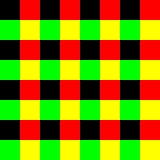FFmpeg -crf 0 -preset ultrafast -tune film -vf format=yuv444p, score 198.7425
Input is a 65535 × 1 PBM file:
P4 65535 1 IEIEIEIEIEIEIEIEIEIEIEIEIEIEIEIEIEIEIEIEIEIEIEIEIEIEIEIEIEIEIEIEIEIEIEIEIEIEIEIEIEIEIEIEIEIEIEIEIEIEIEIEIEIEIEIEIEIEIEIEIEIEIEIEIEIEIEIEIEIEIEIEIEIEIEIEIEIEIEIEIEIEIEIEIEIEIEIEIEIEIEIEIEIEIEIEIEIEIEIEIEIEIEIEIEIEIEIEIEIEIEIEIEIEIEIEIEIEIEIEIEIEIEIEIEIEIEIEIEIEIEIEIEIEIEIEIEIEIEIEIEIEIEIEIEIEIEIEIEIEIEIEIEIEIEIEIEIEIEIEIEIEIEIEIEIEIEIEIEIEIEIEIEIEIEIEIEIEIEIEIEIEIEIEIEIEIEIEIEIEIEIEIEIEIEIEIEIEIEIEIEIEIEIEIEIEIEIEIEIEIEIEIEIEIEIEIEIEIEIEIEIEIEIEIEIEIEIEIEIEIEIEIEIEIEIEIEIEIEIEIEIEIEIEIEIEIEIEIEIEIEIEIEIEIEIEIEIEIEIEIEIEIEIEIEIEIEIEIEIEIEIEIEIEIEIEIEIEIEIEIEIEIEIEIEIEIEIEIEIEIEIEIEIEIEIEIEIEIEIEIEIEIEIEIEIEIEIEIEIEIEIEIEIEIEIEIEIEIEIEIEIEIEIEIEIEIEIEIEIEIEIEIEIEIEIEIEIEIEIEIEIEIEIEIEIEIEIEIEIEIEIEIEIEIEIEIEIEIEIEIEIEIEIEIEIEIEIEIEIEIEIEIEIEIEIEIEIEIEIEIEIEIEIEIEIEIEIEIEIEIEIEIEIEIEIEIEIEIEIEIEIEIEIEIEIEIEIEIEIEIEIEIEIEIEIEIEIEIEIEIEIEIEIEIEIEIEIEIEIEIEIEIEIEIEIEIEIEIEIEIEIEIEIEIEIEIEIEIEIEIEIEIEIEIEIEIEIEIEIEIEIEIEIEIEIEIEIEIEIEIEIEIEIEIEIEIEIEIEIEIEIEIEIEIEIEIEIEIEIEIEIEIEIEIEIEIEIEIEIEIEIEIEIEIEIEIEIEIEIEIEIEIEIEIEIEIEIEIEIEIEIEIEIEIEIEIEIEIEIEIEIEIEIEIEIEIEIEIEIEIEIEIEIEIEIEIEIEIEIEIEIEIEIEIEIEIEIEIEIEIEIEIEIEIEIEIEIEIEIEIEIEIEIEIEIEIEIEIEIEIEIEIEIEIEIEIEIEIEIEIEIEIEIEIEIEIEIEIEIEIEIEIEIEIEIEIEIEIEIEIEIEIEIEIEIEIEIEIEIEIEIEIEIEIEIEIEIEIEIEIEIEIEIEIEIEIEIEIEIEIEIEIEIEIEIEIEIEIEIEIEIEIEIEIEIEIEIEIEIEIEIEIEIEIEIEIEIEIEIEIEIEIEIEIEIEIEIEIEIEIEIEIEIEIEIEIEIEIEIEIEIEIEIEIEIEIEIEIEIEIEIEIEIEIEIEIEIEIEIEIEIEIEIEIEIEIEIEIEIEIEIEIEIEIEIEIEIEIEIEIEIEIEIEIEIEIEIEIEIEIEIEIEIEIEIEIEIEIEIEIEIEIEIEIEIEIEIEIEIEIEIEIEIEIEIEIEIEIEIEIEIEIEIEIEIEIEIEIEIEIEIEIEIEIEIEIEIEIEIEIEIEIEIEIEIEIEIEIEIEIEIEIEIEIEIEIEIEIEIEIEIEIEIEIEIEIEIEIEIEIEIEIEIEIEIEIEIEIEIEIEIEIEIEIEIEIEIEIEIEIEIEIEIEIEIEIEIEIEIEIEIEIEIEIEIEIEIEIEIEIEIEIEIEIEIEIEIEIEIEIEIEIEIEIEIEIEIEIEIEIEIEIEIEIEIEIEIEIEIEIEIEIEIEIEIEIEIEIEIEIEIEIEIEIEIEIEIEIEIEIEIEIEIEIEIEIEIEIEIEIEIEIEIEIEIEIEIEIEIEIEIEIEIEIEIEIEIEIEIEIEIEIEIEIEIEIEIEIEIEIEIEIEIEIEIEIEIEIEIEIEIEIEIEIEIEIEIEIEIEIEIEIEIEIEIEIEIEIEIEIEIEIEIEIEIEIEIEIEIEIEIEIEIEIEIEIEIEIEIEIEIEIEIEIEIEIEIEIEIEIEIEIEIEIEIEIEIEIEIEIEIEIEIEIEIEIEIEIEIEIEIEIEIEIEIEIEIEIEIEIEIEIEIEIEIEIEIEIEIEIEIEIEIEIEIEIEIEIEIEIEIEIEIEIEIEIEIEIEIEIEIEIEIEIEIEIEIEIEIEIEIEIEIEIEIEIEIEIEIEIEIEIEIEIEIEIEIEIEIEIEIEIEIEIEIEIEIEIEIEIEIEIEIEIEIEIEIEIEIEIEIEIEIEIEIEIEIEIEIEIEIEIEIEIEIEIEIEIEIEIEIEIEIEIEIEIEIEIEIEIEIEIEIEIEIEIEIEIEIEIEIEIEIEIEIEIEIEIEIEIEIEIEIEIEIEIEIEIEIEIEIEIEIEIEIEIEIEIEIEIEIEIEIEIEIEIEIEIEIEIEIEIEIEIEIEIEIEIEIEIEIEIEIEIEIEIEIEIEIEIEIEIEIEIEIEIEIEIEIEIEIEIEIEIEIEIEIEIEIEIEIEIEIEIEIEIEIEIEIEIEIEIEIEIEIEIEIEIEIEIEIEIEIEIEIEIEIEIEIEIEIEIEIEIEIEIEIEIEIEIEIEIEIEIEIEIEIEIEIEIEIEIEIEIEIEIEIEIEIEIEIEIEIEIEIEIEIEIEIEIEIEIEIEIEIEIEIEIEIEIEIEIEIEIEIEIEIEIEIEIEIEIEIEIEIEIEIEIEIEIEIEIEIEIEIEIEIEIEIEIEIEIEIEIEIEIEIEIEIEIEIEIEIEIEIEIEIEIEIEIEIEIEIEIEIEIEIEIEIEIEIEIEIEIEIEIEIEIEIEIEIEIEIEIEIEIEIEIEIEIEIEIEIEIEIEIEIEIEIEIEIEIEIEIEIEIEIEIEIEIEIEIEIEIEIEIEIEIEIEIEIEIEIEIEIEIEIEIEIEIEIEIEIEIEIEIEIEIEIEIEIEIEIEIEIEIEIEIEIEIEIEIEIEIEIEIEIEIEIEIEIEIEIEIEIEIEIEIEIEIEIEIEIEIEIEIEIEIEIEIEIEIEIEIEIEIEIEIEIEIEIEIEIEIEIEIEIEIEIEIEIEIEIEIEIEIEIEIEIEIEIEIEIEIEIEIEIEIEIEIEIEIEIEIEIEIEIEIEIEIEIEIEIEIEIEIEIEIEIEIEIEIEIEIEIEIEIEIEIEIEIEIEIEIEIEIEIEIEIEIEIEIEIEIEIEIEIEIEIEIEIEIEIEIEIEIEIEIEIEIEIEIEIEIEIEIEIEIEIEIEIEIEIEIEIEIEIEIEIEIEIEIEIEIEIEIEIEIEIEIEIEIEIEIEIEIEIEIEIEIEIEIEIEIEIEIEIEIEIEIEIEIEIEIEIEIEIEIEIEIEIEIEIEIEIEIEIEIEIEIEIEIEIEIEIEIEIEIEIEIEIEIEIEIEIEIEIEIEIEIEIEIEIEIEIEIEIEIEIEIEIEIEIEIEIEIEIEIEIEIEIEIEIEIEIEIEIEIEIEIEIEIEIEIEIEIEIEIEIEIEIEIEIEIEIEIEIEIEIEIEIEIEIEIEIEIEIEIEIEIEIEIEIEIEIEIEIEIEIEIEIEIEIEIEIEIEIEIEIEIEIEIEIEIEIEIEIEIEIEIEIEIEIEIEIEIEIEIEIEIEIEIEIEIEIEIEIEIEIEIEIEIEIEIEIEIEIEIEIEIEIEIEIEIEIEIEIEIEIEIEIEIEIEIEIEIEIEIEIEIEIEIEIEIEIEIEIEIEIEIEIEIEIEIEIEIEIEIEIEIEIEIEIEIEIEIEIEIEIEIEIEIEIEIEIEIEIEIEIEIEIEIEIEIEIEIEIEIEIEIEIEIEIEIEIEIEIEIEIEIEIEIEIEIEIEIEIEIEIEIEIEIEIEIEIEIEIEIEIEIEIEIEIEIEIEIEIEIEIEIEIEIEIEIEIEIEIEIEIEIEIEIEIEIEIEIEIEIEIEIEIEIEIEIEIEIEIEIEIEIEIEIEIEIEIEIEIEIEIEIEIEIEIEIEIEIEIEIEIEIEIEIEIEIEIEIEIEIEIEIEIEIEIEIEIEIEIEIEIEIEIEIEIEIEIEIEIEIEIEIEIEIEIEIEIEIEIEIEIEIEIEIEIEIEIEIEIEIEIEIEIEIEIEIEIEIEIEIEIEIEIEIEIEIEIEIEIEIEIEIEIEIEIEIEIEIEIEIEIEIEIEIEIEIEIEIEIEIEIEIEIEIEIEIEIEIEIEIEIEIEIEIEIEIEIEIEIEIEIEIEIEIEIEIEIEIEIEIEIEIEIEIEIEIEIEIEIEIEIEIEIEIEIEIEIEIEIEIEIEIEIEIEIEIEIEIEIEIEIEIEIEIEIEIEIEIEIEIEIEIEIEIEIEIEIEIEIEIEIEIEIEIEIEIEIEIEIEIEIEIEIEIEIEIEIEIEIEIEIEIEIEIEIEIEIEIEIEIEIEIEIEIEIEIEIEIEIEIEIEIEIEIEIEIEIEIEIEIEIEIEIEIEIEIEIEIEIEIEIEIEIEIEIEIEIEIEIEIEIEIEIEIEIEIEIEIEIEIEIEIEIEIEIEIEIEIEIEIEIEIEIEIEIEIEIEIEIEIEIEIEIEIEIEIEIEIEIEIEIEIEIEIEIEIEIEIEIEIEIEIEIEIEIEIEIEIEIEIEIEIEIEIEIEIEIEIEIEIEIEIEIEIEIEIEIEIEIEIEIEIEIEIEIEIEIEIEIEIEIEIEIEIEIEIEIEIEIEIEIEIEIEIEIEIEIEIEIEIEIEIEIEIEIEIEIEIEIEIEIEIEIEIEIEIEIEIEIEIEIEIEIEIEIEIEIEIEIEIEIEIEIEIEIEIEIEIEIEIEIEIEIEIEIEIEIEIEIEIEIEIEIEIEIEIEIEIEIEIEIEIEIEIEIEIEIEIEIEIEIEIEIEIEIEIEIEIEIEIEIEIEIEIEIEIEIEIEIEIEIEIEIEIEIEIEIEIEIEIEIEIEIEIEIEIEIEIEIEIEIEIEIEIEIEIEIEIEIEIEIEIEIEIEIEIEIEIEIEIEIEIEIEIEIEIEIEIEIEIEIEIEIEIEIEIEIEIEIEIEIEIEIEIEIEIEIEIEIEIEIEIEIEIEIEIEIEIEIEIEIEIEIEIEIEIEIEIEIEIEIEIEIEIEIEIEIEIEIEIEIEIEIEIEIEIEIEIEIEIEIEIEIEIEIEIEIEIEIEIEIEIEIEIEIEIEIEIEIEIEIEIEIEIEIEIEIEIEIEIEIEIEIEIEIEIEIEIEIEIEIEIEIEIEIEIEIEIEIEIEIEIEIEIEIEIEIEIEIEIEIEIEIEIEIEIEIEIEIEIEIEIEIEIEIEIEIEIEIEIEIEIEIEIEIEIEIEIEIEIEIEIEIEIEIEIEIEIEIEIEIEIEIEIEIEIEIEIEIEIEIEIEIEIEIEIEIEIEIEIEIEIEIEIEIEIEIEIEIEIEIEIEIEIEIEIEIEIEIEIEIEIEIEIEIEIEIEIEIEIEIEIEIEIEIEIEIEIEIEIEIEIEIEIEIEIEIEIEIEIEIEIEIEIEIEIEIEIEIEIEIEIEIEIEIEIEIEIEIEIEIEIEIEIEIEIEIEIEIEIEIEIEIEIEIEIEIEIEIEIEIEIEIEIEIEIEIEIEIEIEIEIEIEIEIEIEIEIEIEIEIEIEIEIEIEIEIEIEIEIEIEIEIEIEIEIEIEIEIEIEIEIEIEIEIEIEIEIEIEIEIEIEIEIEIEIEIEIEIEIEIEIEIEIEIEIEIEIEIEIEIEIEIEIEIEIEIEIEIEIEIEIEIEIEIEIEIEIEIEIEIEIEIEIEIEIEIEIEIEIEIEIEIEIEIEIEIEIEIEIEIEIEIEIEIEIEIEIEIEIEIEIEIEIEIEIEIEIEIEIEIEIEIEIEIEIEIEIEIEIEIEIEIEIEIEIEIEIEIEIEIEIEIEIEIEIEIEIEIEIEIEIEIEIEIEIEIEIEIEIEIEIEIEIEIEIEIEIEIEIEIEIEIEIEIEIEIEIEIEIEIEIEIEIEIEIEIEIEIEIEIEIEIEIEIEIEIEIEIEIEIEIEIEIEIEIEIEIEIEIEIEIEIEIEIEIEIEIEIEIEIEIEIEIEIEIEIEIEIEIEIEIEIEIEIEIEIEIEIEIEIEIEIEIEIEIEIEIEIEIEIEIEIEIEIEIEIEIEIEIEIEIEIEIEIEIEIEIEIEIEIEIEIEIEIEIEIEIEIEIEIEIEIEIEIEIEIEIEIEIEIEIEIEIEIEIEIEIEIEIEIEIEIEIEIEIEIEIEIEIEIEIEIEIEIEIEIEIEIEIEIEIEIEIEIEIEIEIEIEIEIEIEIEIEIEIEIEIEIEIEIEIEIEIEIEIEIEIEIEIEIEIEIEIEIEIEIEIEIEIEIEIEIEIEIEIEIEIEIEIEIEIEIEIEIEIEIEIEIEIEIEIEIEIEIEIEIEIEIEIEIEIEIEIEIEIEIEIEIEIEIEIEIEIEIEIEIEIEIEIEIEIEIEIEIEIEIEIEIEIEIEIEIEIEIEIEIEIEIEIEIEIEIEIEIEIEIEIEIEIEIEIEIEIEIEIEIEIEIEIEIEIEIEIEIEIEIEIEIEIEIEIEIEIEIEIEIEIEIEIEIEIEIEIEIEIEIEIEIEIEIEIEIEIEIEIEIEIEIEIEIEIEIEIEIEIEIEIEIEIEIEIEIEIEIEIEIEIEIEIEIEIEIEIEIEIEIEIEIEIEIEIEIEIEIEIEIEIEIEIEIEIEIEIEIEIEIEIEIEIEIEIEIEIEIEIEIEIEIEIEIEIEIEIEIEIEIEIEIEIEIEIEIEIEIEIEIEIEIEIEIEIEIEIEIEIEIEIEIEIEIEIEIEIEIEIEIEIEIEIEIEIEIEIEIEIEIEIEIEIEIEIEIEIEIEIEIEIEIEIEIEIEIEIEIEIEIEIEIEIEIEIEIEIEIEIEIEIEIEIEIEIEIEIEIEIEIEIEIEIEIEIEIEIEIEIEIEIEIEIEIEIEIEIEIEIEIEIEIEIEIEIEIEIEIEIEIEIEIEIEIEIEIEIEIEIEIEIEIEIEIEIEIEIEIEIEIEIEIEIEIEIEIEIEIEIEIEIEIEIEIEIEIEIEIEIEIEIEIEIEIEIEIEIEIEIEIEIEIEIEIEIEIEIEIEIEIEIEIEIEIEIEIEIEIEIEIEIEIEIEIEIEIEIEIEIEIEIEIEIEIEIEIEIEIEIEIEIEIEIEIEIEIEIEIEIEIEIEIEIEIEIEIEIEIEIEIEIEIEIEIEIEIEIEIEIEIEIEIEIEIEIEIEIEIEIEIEIEIEIEIEIEIEIEIEIEIEIEIEIEIEIEIEIEIEIEIEIEIEIEIEIEIEIEIEIEIEIEIEIEIEIEIEIEIEIEIEIEIEIEIEIEIEIEIEIEIEIEIEIEIEIEIEIEIEIEIEIEIEIEIEIEIEIEIEIEIEIEIEIEIEIEIEIEIEIEIEIEIEIEIEIEIEIEIEIEIEIEIEIEIEIEIEIEIEIEIEIEIEIEIEIEIEIEIEIEIEIEIEIEIEIEIEIEIEIEIEIEIEIEIEIEIEIEIEIEIEIEIEIEIEIEIEIEIEIEIEIEIEIEIEIEIEIEIEIEIEIEIEIEIEIEIEIEIEIEIEIEIEIEIEIEIEIEIEIEIEIEIEIEIEIEIEIEIEIEIEIEIEIEIEIEIEIEIEIEIEIEIEIEIEIEIEIEIEIEIEIEIEIEIEIEIEIEIEIEIEIEIEIEIEIEIEIEIEIEIEIEIEIEIEIEIEIEIEIEIEIEIEIEIEIEIEIEIEIEIEIEIEIEIEIEIEIEIEIEIEIEIEIEIEIEIEIEIEIEIEIEIEIEIEIEIEIEIEIEIEIEIEIEIEIEIEIEIEIEIEIEIEIEIEIEIEIEIEIEIEIEIEIEIEIEIEIEIEIEIEIEIEIEIEIEIEIEIEIEIEIEIEIEIEIEIEIEIEIEIEIEIEIEIEIEIEIEIEIEIEIEIEIEIEIEIEIEIEIEIEIEIEIEIEIEIEIEIEIEIEIEIEIEIEIEIEIEIEIEIEIEIEIEIEIEIEIEIEIEIEIEIEIEIEIEIEIEIEIEIEIEIEIEIEIEIEIEIEIEIEIEIEIEIEIEIEIEIEIEIEIEIEIEIEIEIEIEIEIEIEIEIEIEIEIEIEIEIEIEIEIEIEIEIEIEIEIEIEIEIEIEIEIEIEIEIEIEIEIEIEIEIEIEIEIEIEIEIEIEIEIEIEIEIEIEIEIEIEIEIEIEIEIEIEIEIEIEIEIEIEIEIEIEIEIEIEIEIEIEIEIEIEIEIEIEIEIEIEIEIEIEIEIEIEIEIEIEIEIEIEIEIEIEIEIEIEIEIEIEIEIEIEIEIEIEIEIEIEIEIEIEIEIEIEIEIEIEIEIEIEIEIEIEIEIEIEIEIEIEIEIEIEIEIEIEIEIEIEIEIEIEIEIEIEIEIEIEIEIEIEIEIEIEIEIEIEIEIEIEIEIEIEIEIEIEIEIEIEIEIEIEIEIEIEIEIEIEIEIEIEIEIEIEIEIEIEIEIEIEIEIEIEIEIEIEIEIEIEIEIEIEIEIEIEIEIEIEIEIEIEIEIEIEIEIEIEIEIEIEIEIEIEIEIEIEIEIEIEIEIEIEIEIEIEIEIEIEIEIEIEIEIEIEIEIEIEIEIEIEIEIEIEIEIEIEIEIEIEIEIEIEIEIEIEIEIEIEIEIEIEIEIEIEIEIEIEIEIEIEIEIEIEIEIEIEIEIEIEIEIEIEIEIEIEIEIEIEIEIEIEIEIEIEIEIEIEIEIEIEIEIEIEIEIEIEIEIEIEIEIEIEIEIEIEIEIEIEIEIEIEIEIEIEIEIEIEIEIEIEIEIEIEIEIEIEIEIEIEIEIEIEIEIEIEIEIEIEIEIEIEIEIEIEIEIEIEIEIEIEIEIEIEIEIEIEIEIEIEIEIEIEIEIEIEIEIEIEIEIEIEIEIEIEIEIEIEIEIEIEIEIEIEIEIEIEIEIEIEIEIEIEIEIEIEIEIEIEIEIEIEIEIEIEIEIEIEIEIEIEIEIEIEIEIEIEIEIEIEIEIEIEIEIEIEIEIEIEIEIEIEIEIEIEIEIEIEIEIEIEIEIEIEIEIEIEIEIEIEIEIEIEIEIEIEIEIEIEIEIEIEIEIEIEIEIEIEIEIEIEIEIEIEIEIEIEIEIEIEIEIEIEIEIEIEIEIEIEIEIEIEIEIEIEIEIEIEIEIEIEIEIEIEIEIEIEIEIEIEIEIEIEIEIEIEIEIEIEIEIEIEIEIEIEIEIEIEIEIEIEIEIEIEIEIEIEIEIEIEIEIEIEIEIEIEIEIEIEIEIEIEIEIEIEIEIEIEIEIEIEIEIEIEIEIEIEIEIEIEIEIEIEIEIEIEIEIEIEIEIEIEIEIEIEIEIEIEIEIEIEIEIEIEIEIEIEIEIEIEIEIEIEIEIEIEIEIEIEIEIEIEIEIEIEIEIEIEIEIEIEIEIEIEIEIEIEIEIEIEIEIEIEIEIEIEIEIEIEIEIEIEIEIEIEIEIEIEIEIEIEIEIEIEIEIEIEIEIEIEIEIEIEIEIEIEIEIEIEIEIEIEIEIEIEIEIEIEIEIEIEIEIEIEIEIEIEIEIEIEIEIEIEIEIEIEIEIEIEIEIEIEIEIEIEIEIEIEIEIEIEIEIEIEIEIEIEIEIEIEIEIEIEIEIEIEIEIEIEIEIEIEIEIEIEIEIEIEIEIEIEIEIEIEIEIEIEIEIEIEIEIEIEIEIEIEIEIEIEIEIEIEIEIEIEIEIEIEIEIEIEIEIEIEIEIEIEIEIEIEIEIEIEIEIEIEIEIEIEIEIEIEIEIEIEIEIEIEIEIEIEIEIEIEIEIEIEIEIEIEIEIEIEIEIEIEIEIEIEIEIEIEIEIEIEIEIEIEIEIEIEIEIEIEIEIEIEIEIEIEIEIEIEIEIEIEIEIEIEIEIEIEIEIEIEIEIEIEIEIEIEIEIEIEIEIEIEIEIEIEIEIEIEIEIEIEIEIEIEIEIEIEIEIEIEIEIEIEIEIEIEIEIEIEIEIEIEIEIEIEIEIEIEIEIEIEIEIEIEIEIEIEIEIEIEIEIEIEIEIEIEIEIEIEIEIEIEIEIEIEIEIEIEIEIEIEIEIEIEIEIEIEIEIEIEIEIEIEIEIEIEIEIEIEIEIEIEIEIEIEIEIEIEIEIEIEIEIEIEIEIEIEIEIEIEIEIEIEIEIEIEIEIEIEIEIEIEIEIEIEIEIEIEIEIEIEIEIEIEIEIEIEIEIEIEIEIEIEIEIEIEIEIEIEIEIEIEIEIEIEIEIEIEIEIEIEIEIEIEIEIEIEIEIEIEIEIEIEIEIEI
This image consists of repetitions of the following 16-pixel pattern:

The input file is exactly 10,000 bytes: the first 8203 bytes encode the image (one bit per pixel plus the 11 byte header); the last 1797 bytes are padding.
The input is 'compressed' into a single-frame lossless H.264 video using FFmpeg, yielding a 1,987,425 byte MP4 file as output. The following Ruby script generates both files:
#!/usr/bin/env ruby
raw = 'raw.pbm'
cmp = 'compressed.mp4'
File.write(raw, 'P4 65535 1 ' + 'IE'*4994 + 'I')
system("ffmpeg -i #{raw} -crf 0 -preset ultrafast -tune film -vf format=yuv444p -frames 1 #{cmp}")
puts File.size(raw)
puts File.size(cmp)
The compression/quality options passed to FFmpeg are:
-crf 0 (constant rate factor 0). From the docs: 'You can use -crf 0 to create a lossless video . . . Note that lossless output files will likely be huge'.
-preset ultrafast 'A slower preset will provide better compression', so I chose the fastest one. (The next fastest option, superfast, reduces the file size more than fivefold.)
-tune film Adding this option ('use for high quality movie content; lowers deblocking') increased the file size by 2 bytes.
-vf format=yuv444p Adding this option (no chroma subsampling) increased the file size by 1 byte.
For comparison, with the default compression/quality settings (ffmpeg -i raw.pbm -frames 1 compressed.mp4) the compression ratio is 4.44558. With maximum compression and lowest quality (ffmpeg -i raw.pbm -crf 51 -preset veryslow -frames 1 compressed.mp4) the compression ratio is 1.4147.
Pattern selection
Images encoded only by repetitions of one of I, E, ), %, 0x15, or Q result in MP4 files that are at least 9.5 % larger than for any other byte. These six patterns all have a white:black pixel ratio of 5:3 with no two black pixels adjacent to each other. I tested all repeated permutations of these six bytes up to size six, finding that the pattern encoded by repetitions of IE yielded the largest file size.
One might guess that a random image would result in a larger MP4 file than a regular pattern. I have found no such image. Across 10,000 trials with images encoded by random combinations of the six bytes identified above, the maximum file size was 1,961,715 bytes (average 1,961,005). Across 10,000 trials with completely random images, the maximum file size was only 1,514,853 bytes (average 1,499,010).
In an older version of this answer I used -filter:v fps=10000000 instead of -frames 1, resulting in a much higher compression ratio, without realising that the output contained thousands of frames (thanks to @MT0 for the comment). This seemed like an unfair advantage, as more frames containing the same image could be added to increase the file size at will.




